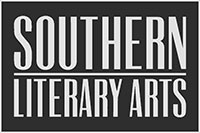MISSION
The Center for Southern Literary Arts cultivates the rich and diverse stories of the Memphis region and encourages and supports innovations in the literary arts. Through community programs, education initiatives, artist residencies, and creative economic development, the CSLA expands beyond the traditional boundaries of the literary arts to capture and reclaim stories as a pathway to repair, equity, and justice in the city, the South, and the nation.
EUREKA!
The Center for Southern Literary Arts draws its inspiration from the gone-but-not-forgotten Eureka Hotel (“Always Open”) on Mulberry Street. The Lorraine’s shadier cousin, the Eureka was a home for black life, art, entrepreneurship, and folklore.
GOALS
Provide infrastructure for local writers and literary projects.
Return Memphis to the literary map by hosting nationally-recognized authors and publishing professionals and actively promoting regional literary talent.
Contribute to neighborhood revitalization and the creation of an arts-based civic and creative commons through the literary arts and arts entrepreneurship.
Connect students broadly to training and diversity in professional writing and ethics in storytelling.
Support existing arts and social justice organizations to broaden the accessibility of the literary arts to racial and ethnic minorities, LGBTQIA groups, and disabled persons.
IMPACT
WHAT CAN THE CSLA DO FOR MEMPHIS?
WHAT CAN MEMPHIS DO FOR THE WORLD?
A sustainable arts community has significant economic impacts on individual practitioners, neighborhoods, and the region. By facilitating professionalization of literary artists and administrators, the CSLA will develop and retain talent, create national opportunities for artists, and attract writers from around the world. By anchoring in a neighborhood in close collaboration with residents and stakeholders, the CSLA will provide just and sustainable model for community development and arts-based creative placemaking in Memphis. By focusing on equity in the arts and city development, the CSLA will actively help address enduring disparities in Memphis.
As Memphis native and nationally-renowned journalist Wendi C. Thomas has deftly shown, how we tell stories about the city’s racial majority is a matter of justice, shaping everything from everyday interracial interactions to life-and-death policy decisions. As the 50th anniversary of the assassination of Martin Luther King, Jr. approaches, stories from the margins are more essential to sincerely evaluating our past and setting a course for our nation’s future than ever. Looking outwards to other cities and institutions that house literature and social justice, we believe that centering the literary tradition and literary possibility of this region and this city will both protect and shape the nation’s next steps towards justice.
Scores of arts-based neighborhood revitalization projects across the country use the visual arts to anchor communities and redefine civic participation and equity. Yet, we believe a city’s literary culture has the capacity to reflect and nurture all creative disciplines, functioning as an anchor for arts communicators, storytellers, and reporters, and musicians, visual artists, culinary artists, and more. A literary arts-based neighborhood revitalization and creative placemaking effort would facilitate the emergence of a more inclusive and diverse creative class, bringing more people into the economy and improving the socioeconomic outcomes for marginalized Memphians.
